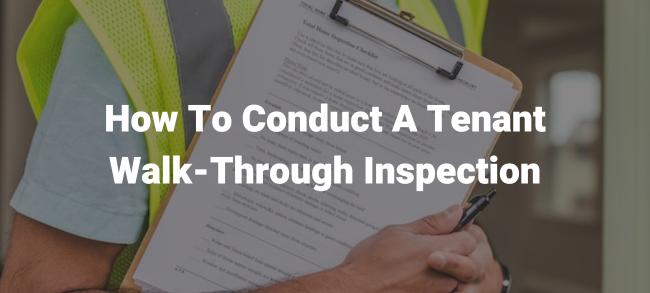5 Mistakes Real Estate Investors Make When Budgeting Their Property
The greatest advantage of investing in real estate is the ability to predict what your ROI will be.
That said, your return on your Tampa, Florida investment is only as good as the numbers you begin with. So, avoiding mistakes early on in your investment journey is key to your rental business’ success.
In today’s post, you’re going to learn 5 of the most common mistakes beginner rental property investors make when budgeting their property – and how you can avoid them.
So, read on to find out how to start a successful rental property business!
Mistake #1: Being over-optimistic on the vacancy rate.
This is a mistake that many beginner real estate investors make. They become overly optimistic about the vacancy rate.
When managing a rental property, vacancies will be a common thing. Your tenant may want to relocate for many reasons. Some of the top reasons renters move include:
- Need more space. Your tenant may need extra space after starting a home business, adopting a pet, giving birth, or getting married.
- Need less space. The newly-single and the empty nesters may fail to see the practicality in maintaining a larger space, just as growing families easily see the need to expand living space.
- Want to change the neighborhood. A tenant may feel that their current neighborhood is unsafe for them to continue living there. They may also want to switch school districts, or they may just simply want to experience a new location.
- Move closer to their new place of work.
- Move due to maintenance issues. They may get tired dealing with pest problems, leaky roofs, or clogged drains.
While many are beyond your control, there are some that you can do something about, like staying on top of maintenance issues.
Since vacancies are an inevitable reality, the key is taking them into account when running the numbers on your rental. Generally speaking, budget a minimum of 8% of the rent as your property’s vacancy rate.
The only real exception to this rule is if you know your property is located in a popular rental market. If so, you can decrease the vacancy rate percent you include when calculating your initial budget.
Mistake #2: Underestimating regular maintenance.
Not including maintenance in your budget is a big mistake. Mostly because maintenance correlates with a rental property’s value. A properly maintained property has better value and vice versa.
Now, maintenance has more to do with how your Tampa tenants use the property. Common rental property maintenance tasks include refinishing, re-carpeting, or repainting. Thankfully, you only have to do them once your tenant moves out.
That said, they can be quite costly, not to mention the time you’d need to spare to handle them.
So, just how much should you budget for your property’s maintenance needs? Well, there isn’t a quick answer. But the following four formulas can help you get a general overview of what to expect. Take your pick, or use them all!
- 5x rule: maintenance costs will average 1.5 times the monthly rental rate. If your Tampa property rents for $800 a month, then expect to spend about $1,200 a year on repairs.
- Square footage formula: For every square foot, expect to spend $1 on yearly maintenance costs.
- 1% Rule: Maintenance will cost about 1% of the property’s value per year. So, for a property valued $200,000, the maintenance costs should be roughly $2,000.
- 50% Rule: This looks at the total operating costs that go into keeping a property up and running. Examples of operating costs include insurance, taxes, maintenance, and repairs. Accordingly, if your property rents for $1,200, expect to spend up to $600 on the operating costs.
Mistake #3: Failing to budget for property management.
Many new rental property owners in Tampa, Florida make the mistake of thinking that being a landlord is easy to work. It’s definitely not! Being a landlord means more than just collecting rents.
Here are a few questions to ask yourself to determine your suitability.
- Are you willing to fully dedicate all your time?
- Do you know how to handle repairs and maintenance?
- How will you collect rent?
- Are you comfortable being legally responsible for the property?
- How much time and effort can you invest?
- Are you financially capable of handling times of vacancy?
- Are you prepared to screen potential tenants?
- Do you understand local, state, and federal rental laws?
If you answered ‘no’ to most of these questions, then it may be in your best interest to just hire an expert. A professional property manager has the skills, knowledge, and resources to handle your rental property.
Now, you’ll need a budget for this. Typically, this will be about 5% to 10% of your rental income.
Mistake #4: Inaccurately calculating your equity.
Far too often you’ll hear a property owner brag how much equity they have on their property. They think that because the worth of their Tampa property is $300,000, and they owe $210,000, their equity is $90,000!”
Well, that’s true on paper. However, it’s nowhere near the $90,000 when it comes to reality.
What people tend to forget to include is the cashing out and liquidating costs. In most cases, these costs usually ramp up to about 10%. That means that for a property worth $300,000, you can expect to pay $30,000 for exit costs.
What’s left (in our case $90,000-$30,000=$60,000) is what you could realistically expect to walk away with.
Mistake #5: Ignoring administrative and miscellaneous expenses.
They may seem trivial, but these can quickly add up. As a real estate investor, you’ll often find yourself spending time and money visiting your properties or looking at potential new real estate investments.
Little by little, that mileage ads up, both in fuel and on your car’s wear and tear.
There are also other things to consider besides travels. What about bookkeeping? Would you handle it yourself or do you hire a professional? Again, it is a labor expense whichever way you look at it.
Is your Tampa, Florida rental property classified as a legal entity? If so, you’ll need money to file and maintain.
What about your tax returns? As your real estate business expands, the more complicated and time-consuming filing taxes will become. If you choose to do it yourself, then expect to forgo your weekends to fill in the forms. Although, if you choose not to, then expect to pay for professional help.
Generally speaking, you want to keep aside about 3% to meet these often-overlooked costs.
These are the 5 main mistakes to avoid when budgeting your Tampa, FL property. If you still need more help, please seek professional help.









